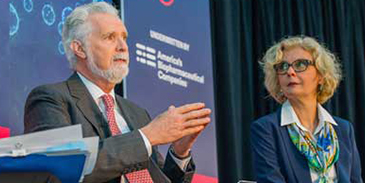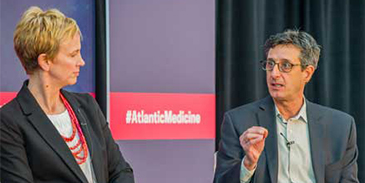
For decades we have seen unparalleled progress in vaccine development, with more than 260 vaccines in the development pipeline to treat and prevent diseases. As part of this greater dialogue on vaccines, leading minds – from public health officials to the medical and scientific community – convened in Philadelphia to discuss the critical role of vaccines in warding off disease and the innovative science powering new breakthroughs.

